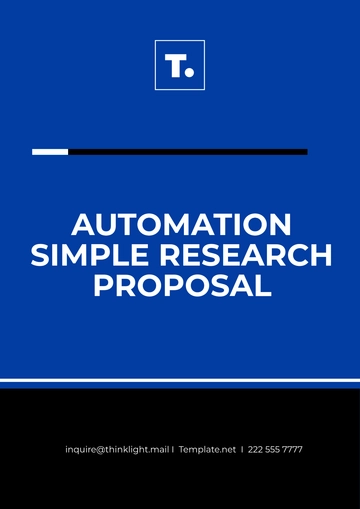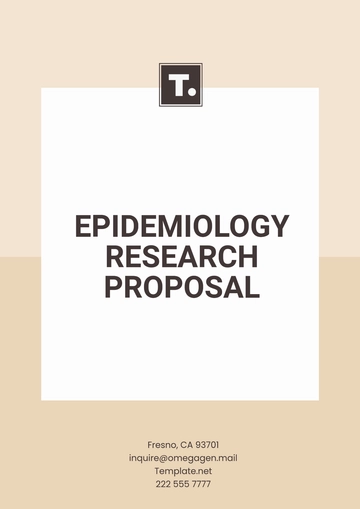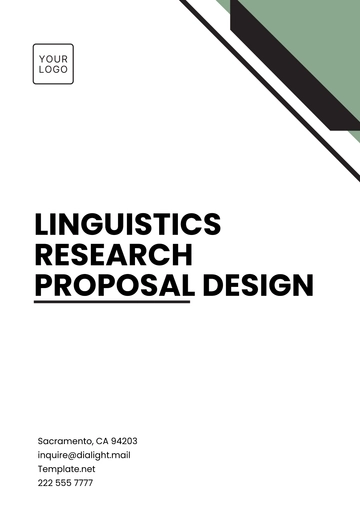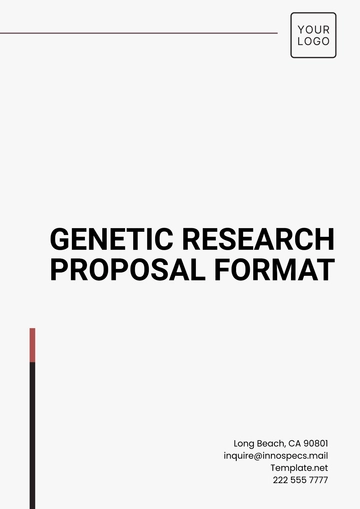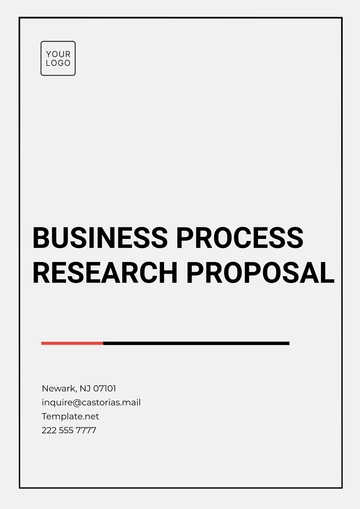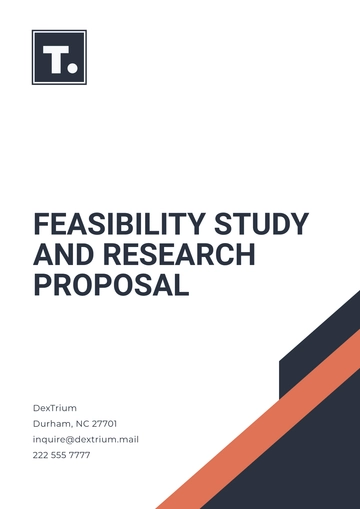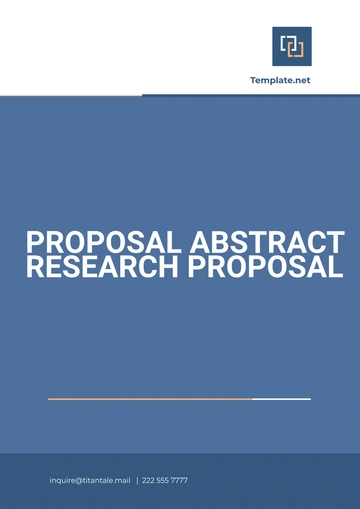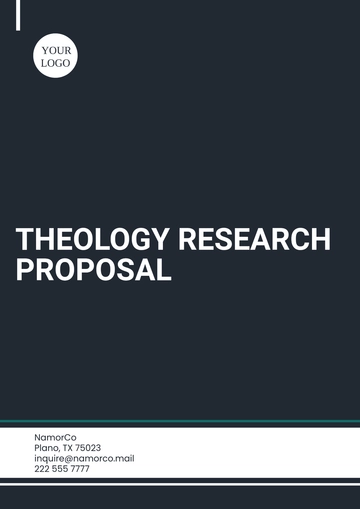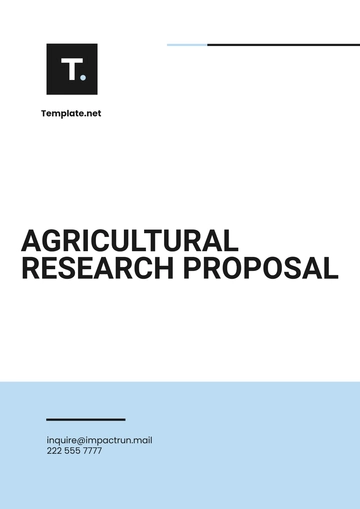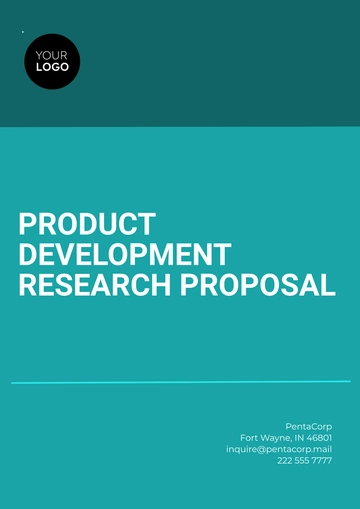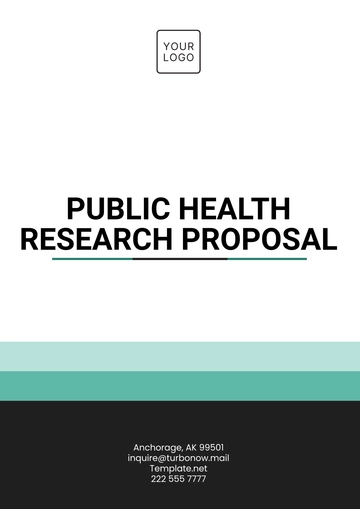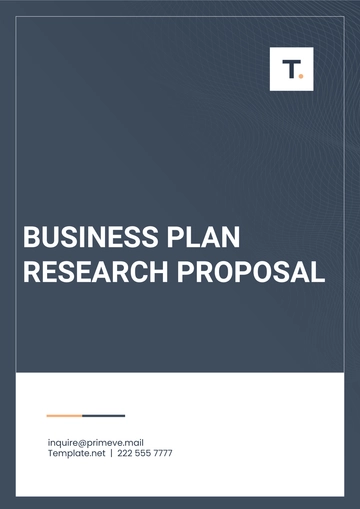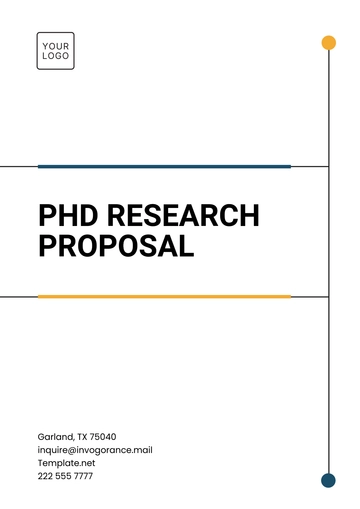Free Financial Research Proposal
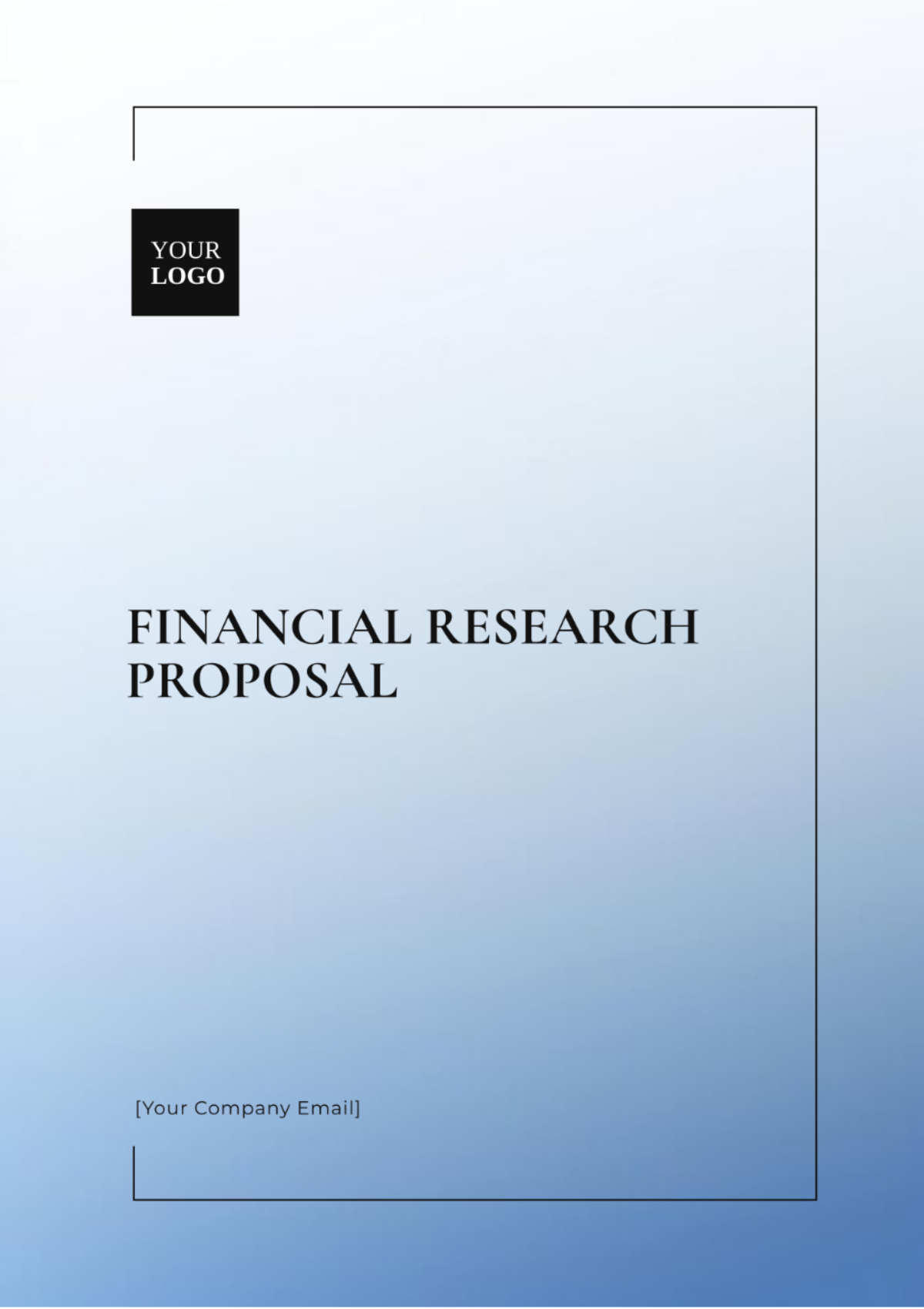
Prepared By: [YOUR NAME]
Date: [DATE]
I. Abstract or Executive Summary
This research proposal outlines a comprehensive study aimed at investigating the impact of financial literacy on investment decisions among millennials. The key objectives include understanding the correlation between financial education and investment behaviors and identifying barriers to effective financial decision-making. Expected outcomes will provide insights into improving financial literacy programs to enhance investment outcomes for young adults.
II. Introduction
Financial literacy is critical in shaping effective investment decisions, yet there remains a significant knowledge gap, particularly among millennials. This study seeks to explore how financial education influences investment behaviors in this demographic group. Given the increasing complexity of financial markets and the growing importance of personal savings for future financial security, understanding these dynamics is crucial.
III. Objectives
To examine the current level of financial literacy among millennials.
To investigate the relationship between financial literacy and investment decisions.
To identify major barriers to effective financial decision-making in this age group.
To suggest policy recommendations for improving financial literacy programs.
IV. Literature Review
Previous studies have established a link between financial literacy and improved financial outcomes (Lusardi & Mitchell, 2054). However, recent research suggests that many young adults lack basic financial knowledge (Lusardi et al., 2050). This proposal aims to address these gaps by focusing on how financial education impacts investment behavior specifically among millennials, who are at a formative stage of their financial lives.
V. Methodology
The research will use a mixed-methods approach. A survey will be conducted to assess the financial literacy levels and investment behaviors of millennials. Data sources will include academic journals, financial reports, and datasets from financial education programs. Analytical methods will involve statistical analysis to identify correlations, as well as qualitative methods to understand the barriers to financial decision-making.
Research Activity | Method |
|---|---|
Literacy Assessment | Survey |
Investment Behavior Analysis | Statistical Analysis |
Barrier Identification | Qualitative Interviews |
VI. Expected Outcomes
Enhanced understanding of the correlation between financial literacy and investment decisions among millennials.
The process of identifying the primary obstacles that hinder the ability to make effective financial decisions.
Comprehensive recommendations based on data analysis for the enhancement of educational programs focused on increasing financial literacy.
Possible consequences and considerations for educational establishments and financial organizations due to changes or implementations in policy.
VII. Timeline
Activity | Timeframe |
|---|---|
Literature Review | Month 1 |
Survey Design | Month 1-2 |
Data Collection | Month 3-4 |
Data Analysis | Month 5-6 |
Report Writing | Month 7 |
Final Review and Submission | Month 8 |
VIII. Budget
Item | Cost (USD) |
|---|---|
Research Assistants | 5,000 |
Survey Software | 1,000 |
Data Analysis Tools | 2,000 |
Miscellaneous | 1,000 |
Total | 9,000 |
IX. References
Lusardi, A., & Mitchell, O. S. (2054). The Economic Importance of Financial Literacy: Theory and Evidence. Journal of Economic Literature, 52(1), 5–44.
Lusardi, A., Mitchell, O. S., & Curto, V. (2050). Financial Literacy and Financial Sophistication in the Older Population. Journal of Pension Economics & Finance, 19(2), 373-397.
- 100% Customizable, free editor
- Access 1 Million+ Templates, photo’s & graphics
- Download or share as a template
- Click and replace photos, graphics, text, backgrounds
- Resize, crop, AI write & more
- Access advanced editor
Enhance your financial research projects with our Financial Research Proposal Template from Template.net. This editable and customizable template is designed to help you outline your research goals, methodologies, and expected outcomes effectively. Editable in our AI Editor Tool, it allows you to tailor every aspect to your specific needs, ensuring a comprehensive and professional proposal.
You may also like
- Business Proposal
- Research Proposal
- Proposal Request
- Project Proposal
- Grant Proposal
- Photography Proposal
- Job Proposal
- Budget Proposal
- Marketing Proposal
- Branding Proposal
- Advertising Proposal
- Sales Proposal
- Startup Proposal
- Event Proposal
- Creative Proposal
- Restaurant Proposal
- Blank Proposal
- One Page Proposal
- Proposal Report
- IT Proposal
- Non Profit Proposal
- Training Proposal
- Construction Proposal
- School Proposal
- Cleaning Proposal
- Contract Proposal
- HR Proposal
- Travel Agency Proposal
- Small Business Proposal
- Investment Proposal
- Bid Proposal
- Retail Business Proposal
- Sponsorship Proposal
- Academic Proposal
- Partnership Proposal
- Work Proposal
- Agency Proposal
- University Proposal
- Accounting Proposal
- Real Estate Proposal
- Hotel Proposal
- Product Proposal
- Advertising Agency Proposal
- Development Proposal
- Loan Proposal
- Website Proposal
- Nursing Home Proposal
- Financial Proposal
- Salon Proposal
- Freelancer Proposal
- Funding Proposal
- Work from Home Proposal
- Company Proposal
- Consulting Proposal
- Educational Proposal
- Construction Bid Proposal
- Interior Design Proposal
- New Product Proposal
- Sports Proposal
- Corporate Proposal
- Food Proposal
- Property Proposal
- Maintenance Proposal
- Purchase Proposal
- Rental Proposal
- Recruitment Proposal
- Social Media Proposal
- Travel Proposal
- Trip Proposal
- Software Proposal
- Conference Proposal
- Graphic Design Proposal
- Law Firm Proposal
- Medical Proposal
- Music Proposal
- Pricing Proposal
- SEO Proposal
- Strategy Proposal
- Technical Proposal
- Coaching Proposal
- Ecommerce Proposal
- Fundraising Proposal
- Landscaping Proposal
- Charity Proposal
- Contractor Proposal
- Exhibition Proposal
- Art Proposal
- Mobile Proposal
- Equipment Proposal
- Student Proposal
- Engineering Proposal
- Business Proposal


